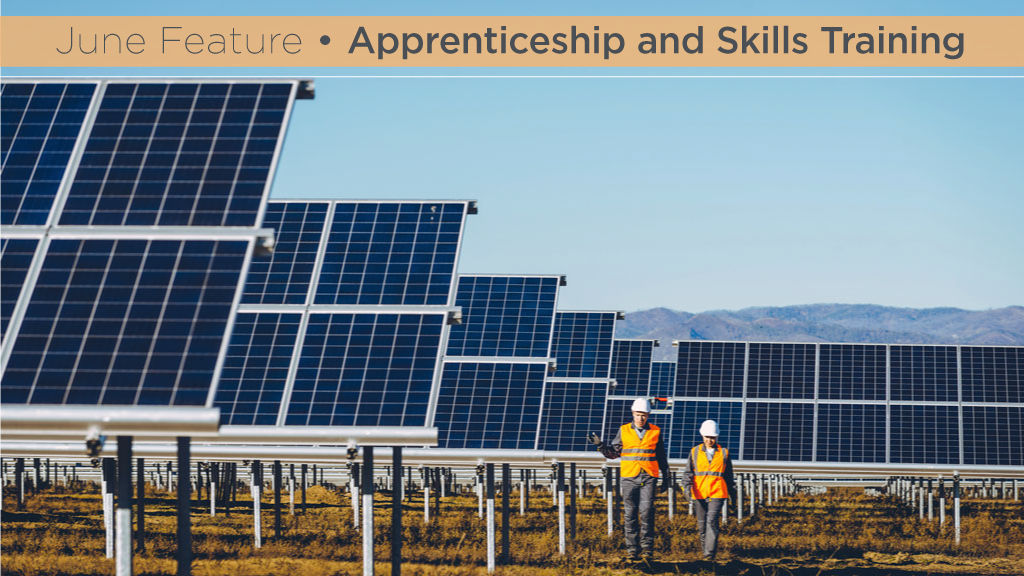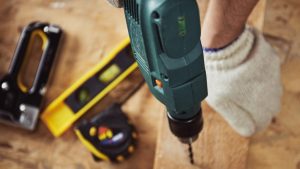When COVID-19 hit, non-profit organization Solar Alberta put all its training and educational content online and then discovered that a large pool of interest was coming from outside the province.
“We decided to stay online,” said Heather MacKenzie, Solar Alberta’s executive director. “We were seeing a lot of interest coming from Eastern Canada and all over the world and, before they come here (to work), there are a lot of folks taking these courses.”
The courses, open to the public, serve as an industry bid to supplement needed labour skills and provide information as the solar industry expands in Alberta.
“We see a demand every day for people to work in the industry. We need people badly. We want to welcome everyone and we want to make sure have enough people for our sector,” MacKenzie said.
Alberta is surpassed only by Saskatchewan as Canada’s ideal site for solar installation, said MacKenzie. Alberta now boasts 12,000 solar arrays with a hefty portion of the installation having been carried out by Solar Alberta members.
MacKenzie said Solar Alberta has forged courses on its website that are easily accessible and recognize that individuals existing in the field and those wanting to train up to work in the field need to manage their time.
The online courses, which range from two to three weeks, can be downloaded to meet a person’s schedule. The cost is $175 to $250 per course. Members receive a 10 per cent discount on courses, while those underrepresented in the solar industry – such as women – receive a further 20 per cent diversity discount.
“We have three types of membership,” said MacKenzie.
Individual membership for students is $20 while others are $35. Solar Alberta has seen a doubling of its individual memberships in the past month, she said.
The other two membership categories are solar businesses (commercial installers, suppliers, and micro-generators) and businesses using solar power, which join to keep abreast of new technology.
The last two sector membership fees are prorated to the size of the business.
Solar Alberta’s courses are utilized in a number of ways, said MacKenzie.
They provide a starting point for those wanting to enter the industry or start a business. The business courses include estimating and how to write a contract. There are also those with skills wanting to broaden their knowledge such as electrician journeymen or engineers who want to enhance their APEGA accreditation.
Finally, she said, there are the companies who hire individuals with some skills and then sign them up for courses to augment that knowledge as well.
MacKenzie said today’s environment of attempting to move away from fossil fuels has spurred demand for courses and the growth of Solar Alberta, which begin in 1991 as “a club of solar enthusiasts who were mainly do-it-yourselfers.”
The growth has made it a non-profit society dedicated to promoting solar knowledge and use.
It has 600 individual members and 150 businesses. Member companies in construction are usually relating to some phase of installation, providing concrete footings, are roofers, or green builders, MacKenzie said.
Solar Alberta also provides a job board and a place where construction contractors can post requests for proposals.
The organization has member institutions that offer solar training. These include Lakeland College, the Northern Alberta Institute of Technology and NorQuest College.
NorQuest’s energy adviser program is designed for contractors and professionals with knowledge of building science and residential construction, including former building contractors or construction professionals, engineers and architects. Solar Alberta openly promotes these institutions to help fill the knowledge gap, MacKenzie said.
“We need all hands on deck.”
In addition, Solar Alberta offers a series of workshops (cost $40) for those who do not want to take a full course plus there are free learning sessions that can also be viewed on YouTube. “The workshops have a quick overview of the subject,” she said, and includes topics such as the top 10 concerns of inspectors, winning bids with Alberta Infrastructure, and an introduction to air and ground source heat pumps.
Demand for solar knowledge is not only coming from solar farms or larger grid systems, but Alberta is seeing solar integrated into more buildings in some form, whether it is on roof panels, windows, solar siding and even solar integrated into railing designs on buildings, MacKenzie said.
But, she also senses a cultural shift with climate change and many natural disasters occurring.
With enhanced battery storage, air and ground source heat pumps, and solar, buildings are becoming self-sustaining.
“There is the concept of an island and you do not have to be grid connected,” she said, and that resilience has a certain cultural appeal to many in Alberta.








Recent Comments